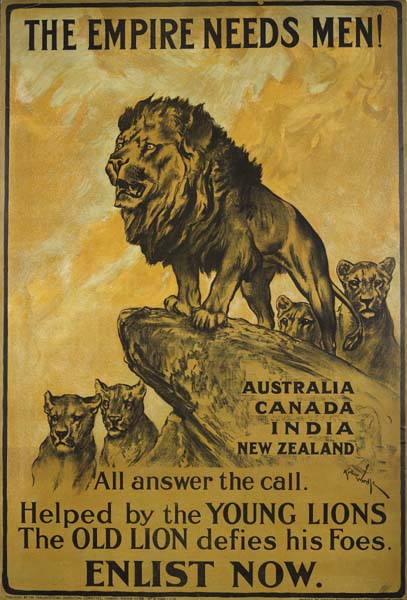The Dominions and World War One
Each of the British Commonwealth countries - the Dominions - played a major part in World War One. The Dominions included Canada, New Zealand, Australia and South Africa and they became automatically involved in the war once Britain declared war on Germany on 4 August 1914. They provided much needed manpower and supplies.

The self-governing dominions had a choice as to whether they provided troops for the Allied cause. In fact, they all decided to support the British, with each dominion playing a vital part in the different theatres of war. For example, Canadian troops fought with great success at the Battle of Vimy Ridge and crucially helped to bolster Britain’s maritime power; Australian troops fought at the Battle of Fromelles (part of the Somme campaign) and suffered heavy losses at Gallipoli. South African and New Zealand troops fought on the Western Front as did troops from India.
Although the troops from the dominions fought gallantly for Britain, World War One led many to question their position in the world and the British Empire. For India, the war intensified the push towards self-government and independence. Others gained a greater sense of nationalism.
“In India growing nationalism foreshadowed a transformation in the character of the Empire, while for all emerging nations the question was raised of the part they were to play in the post-war world.”
(Christopher Falkus)
See also: Canada and World War One
MLA Citation/Reference
"The Dominions and World War One". HistoryLearning.com. 2026. Web.
